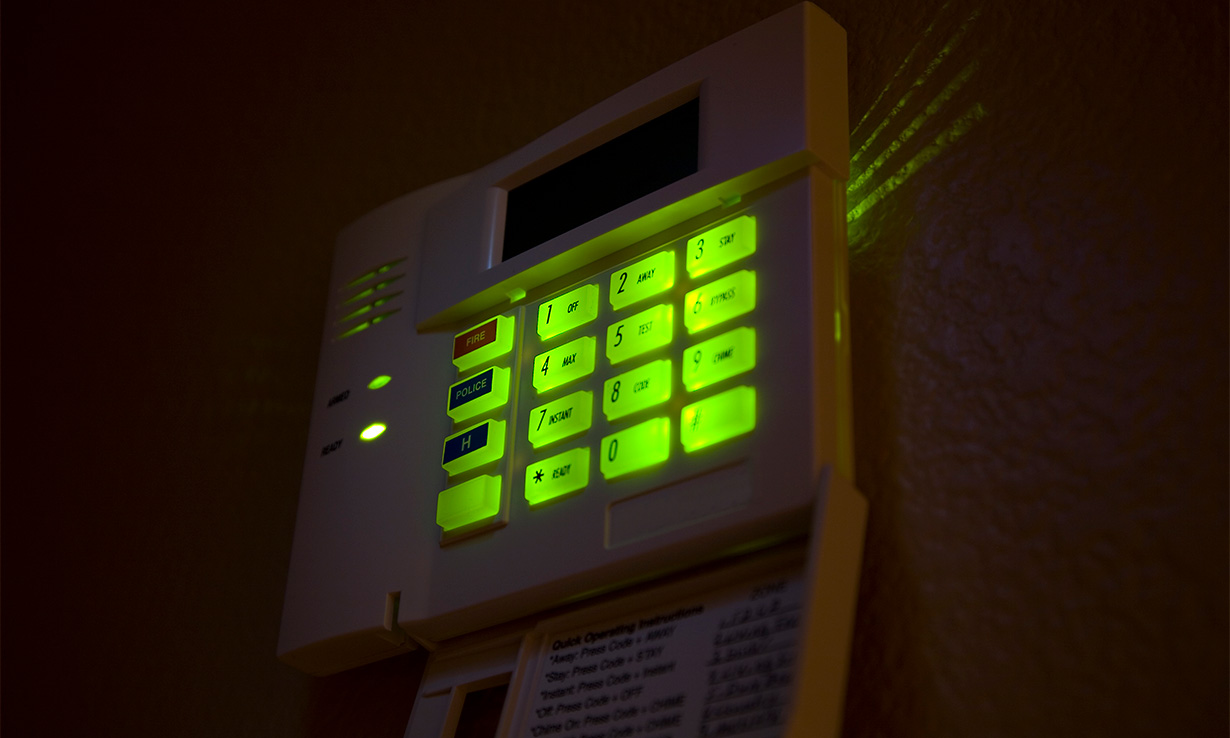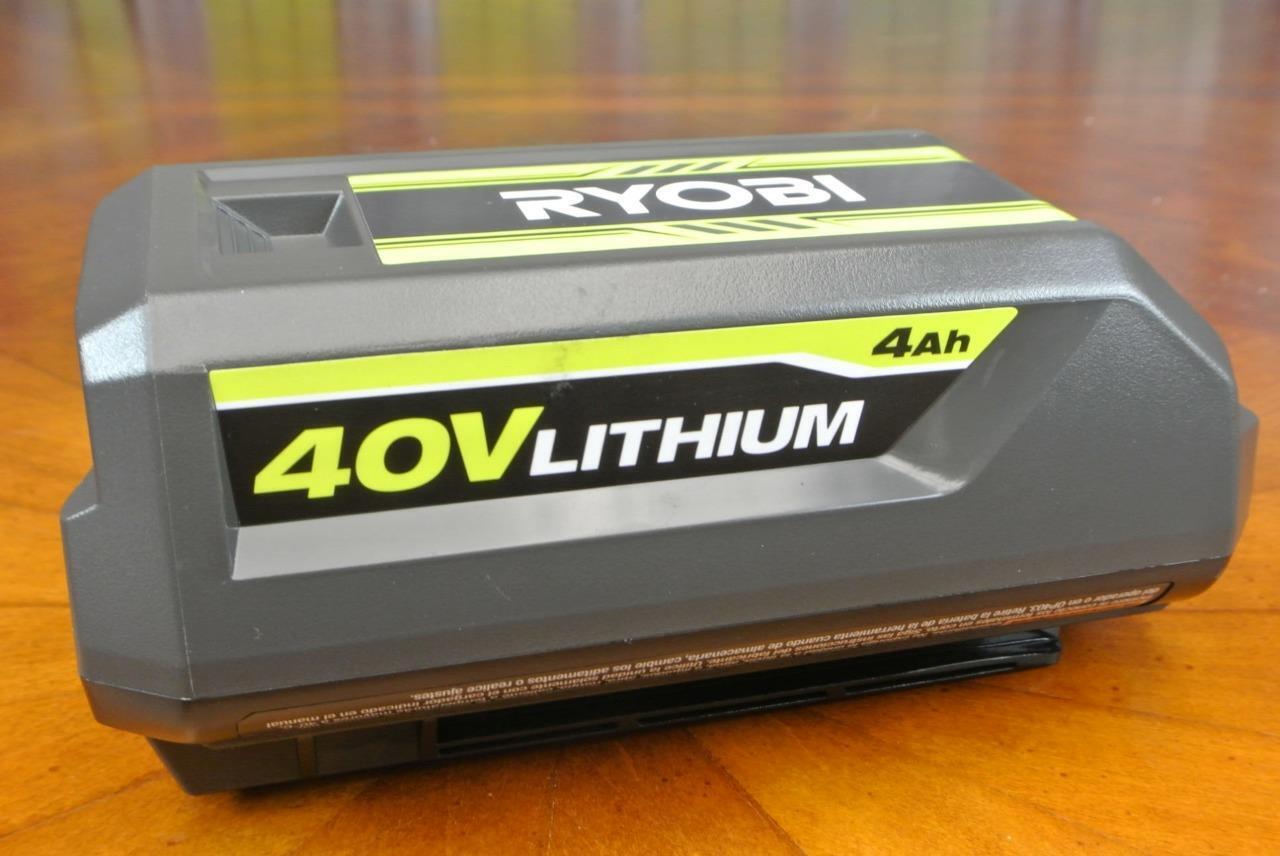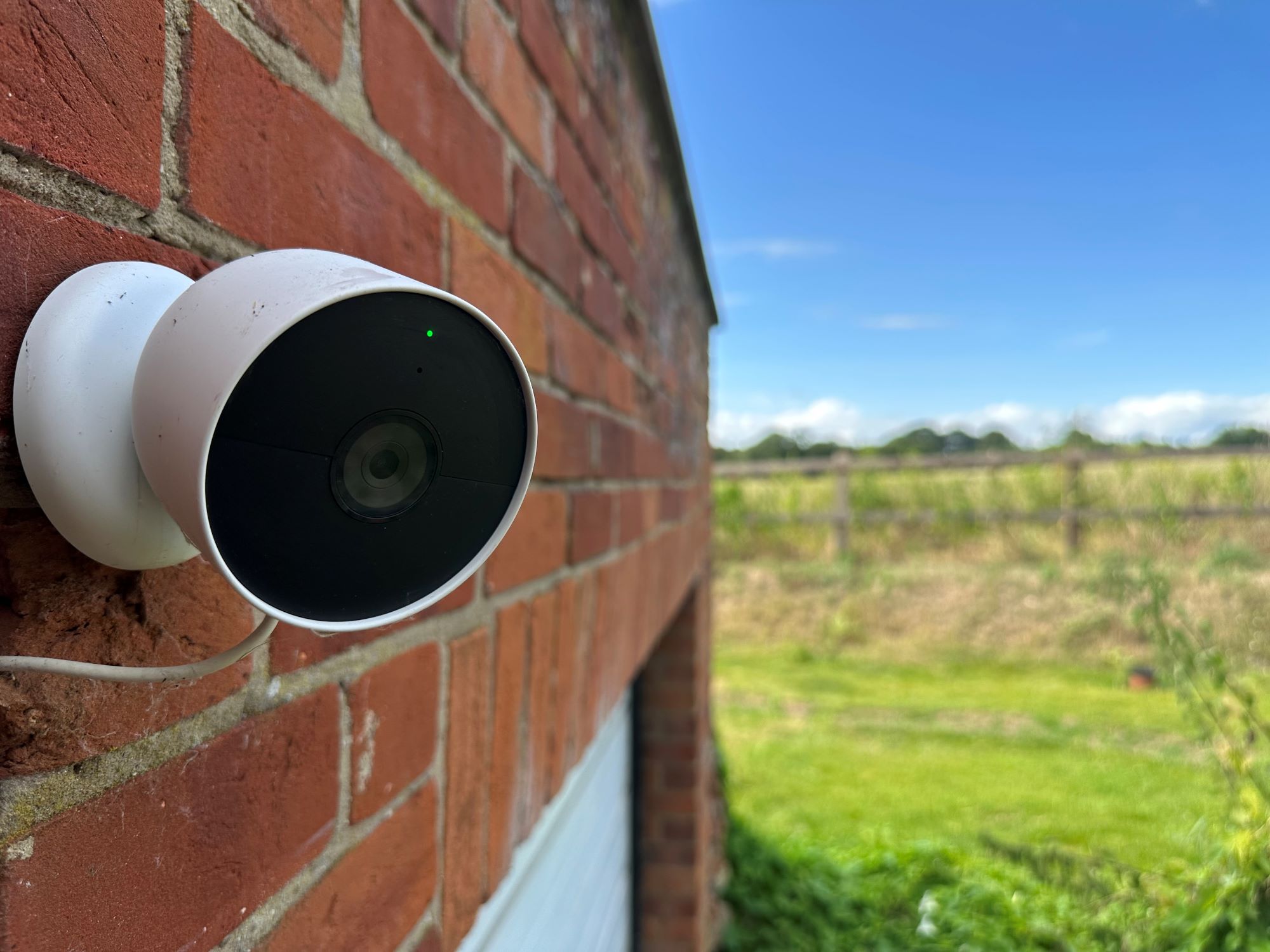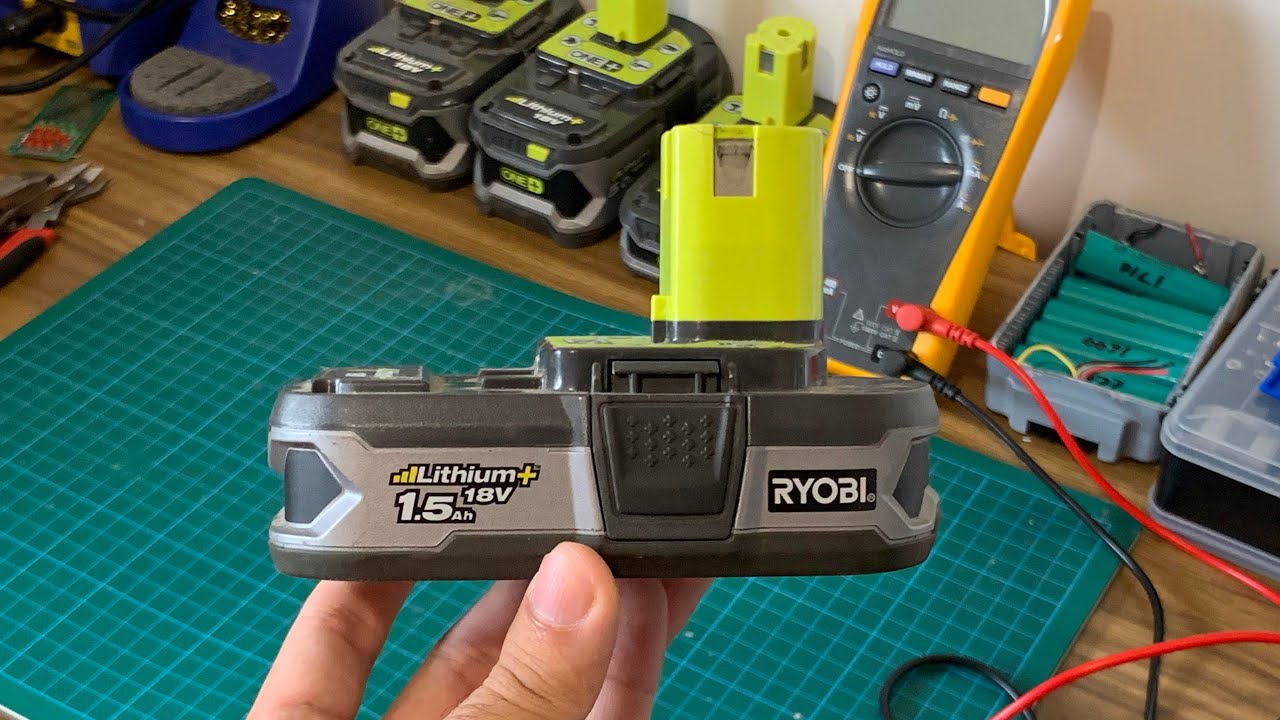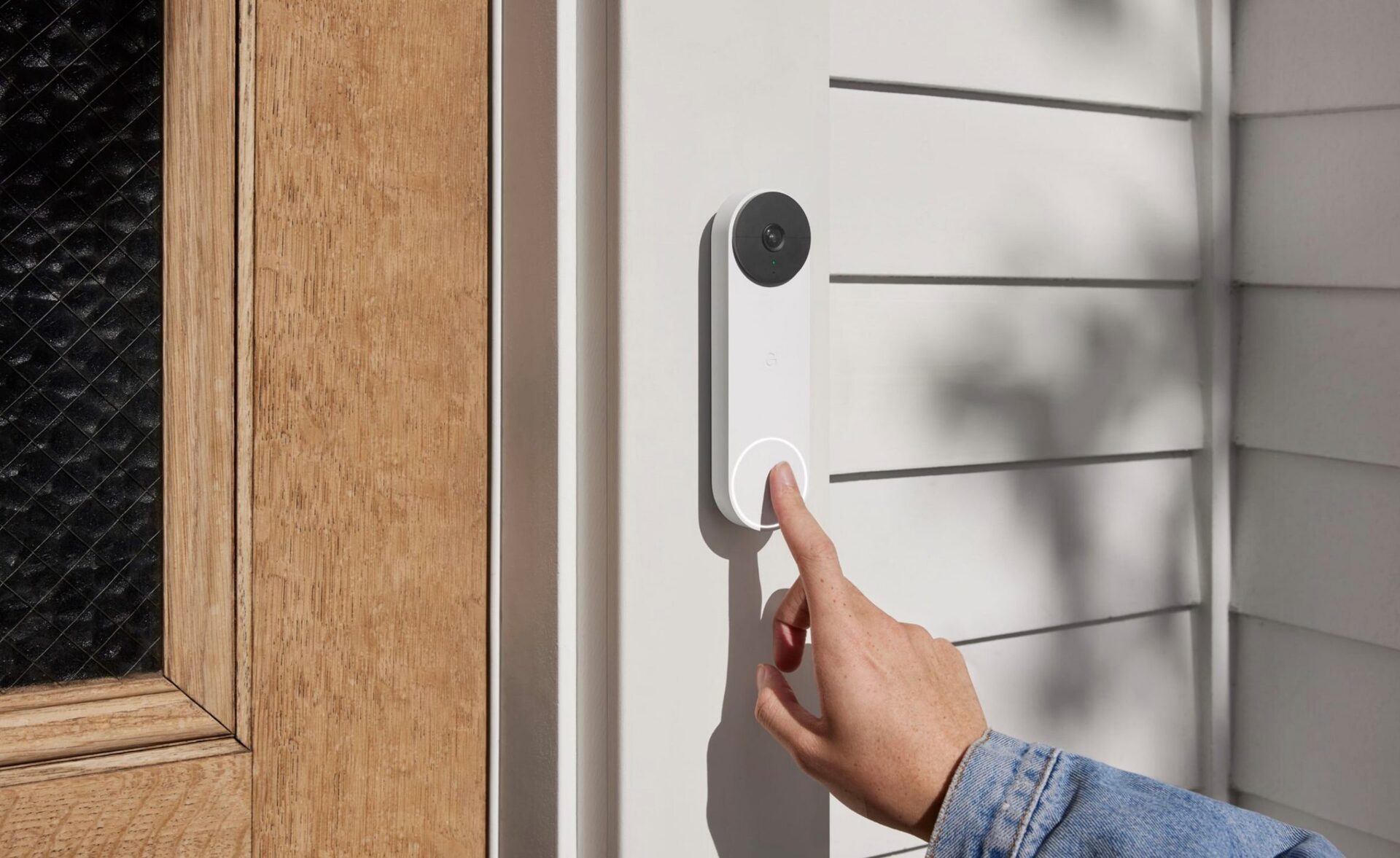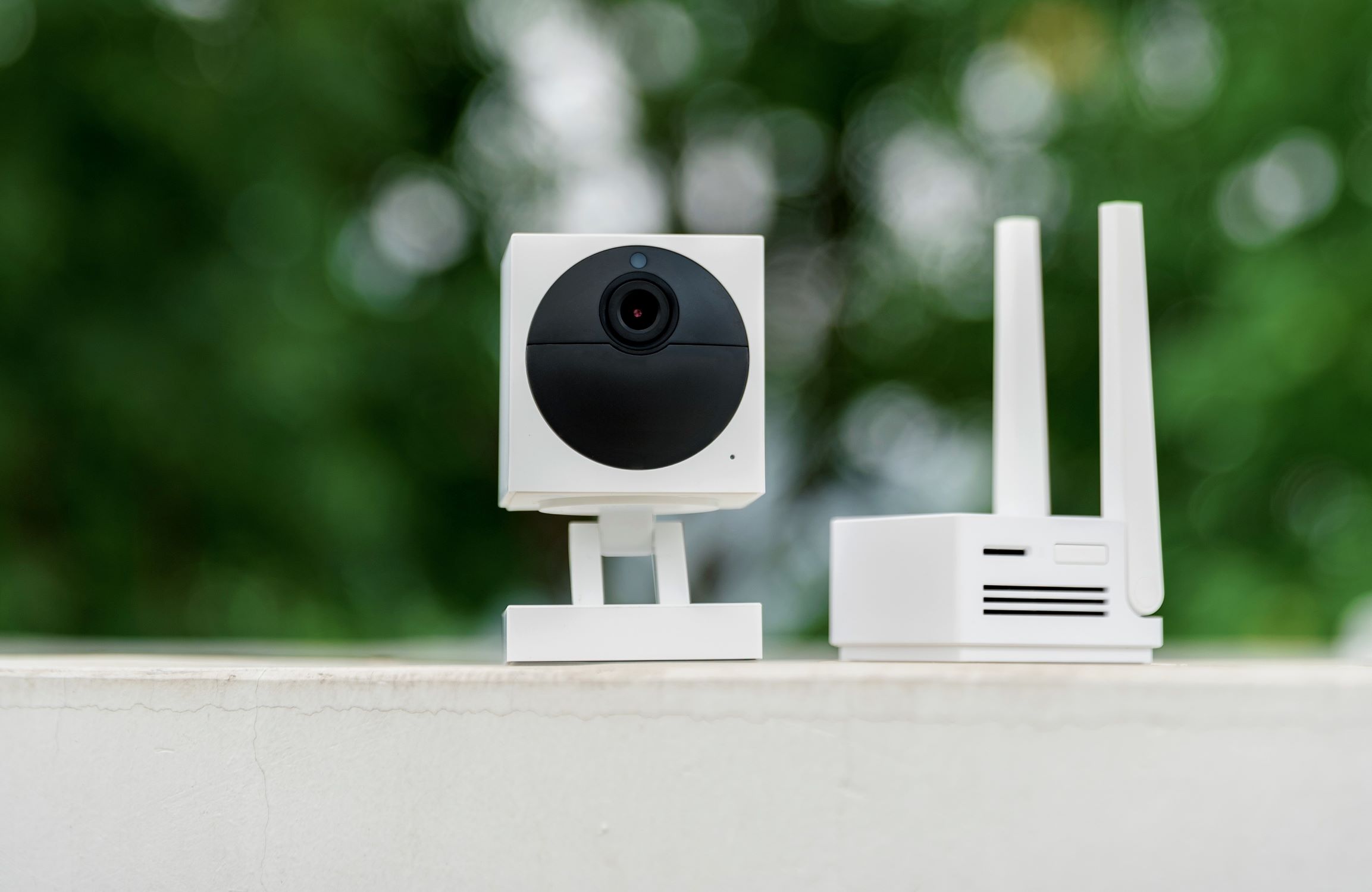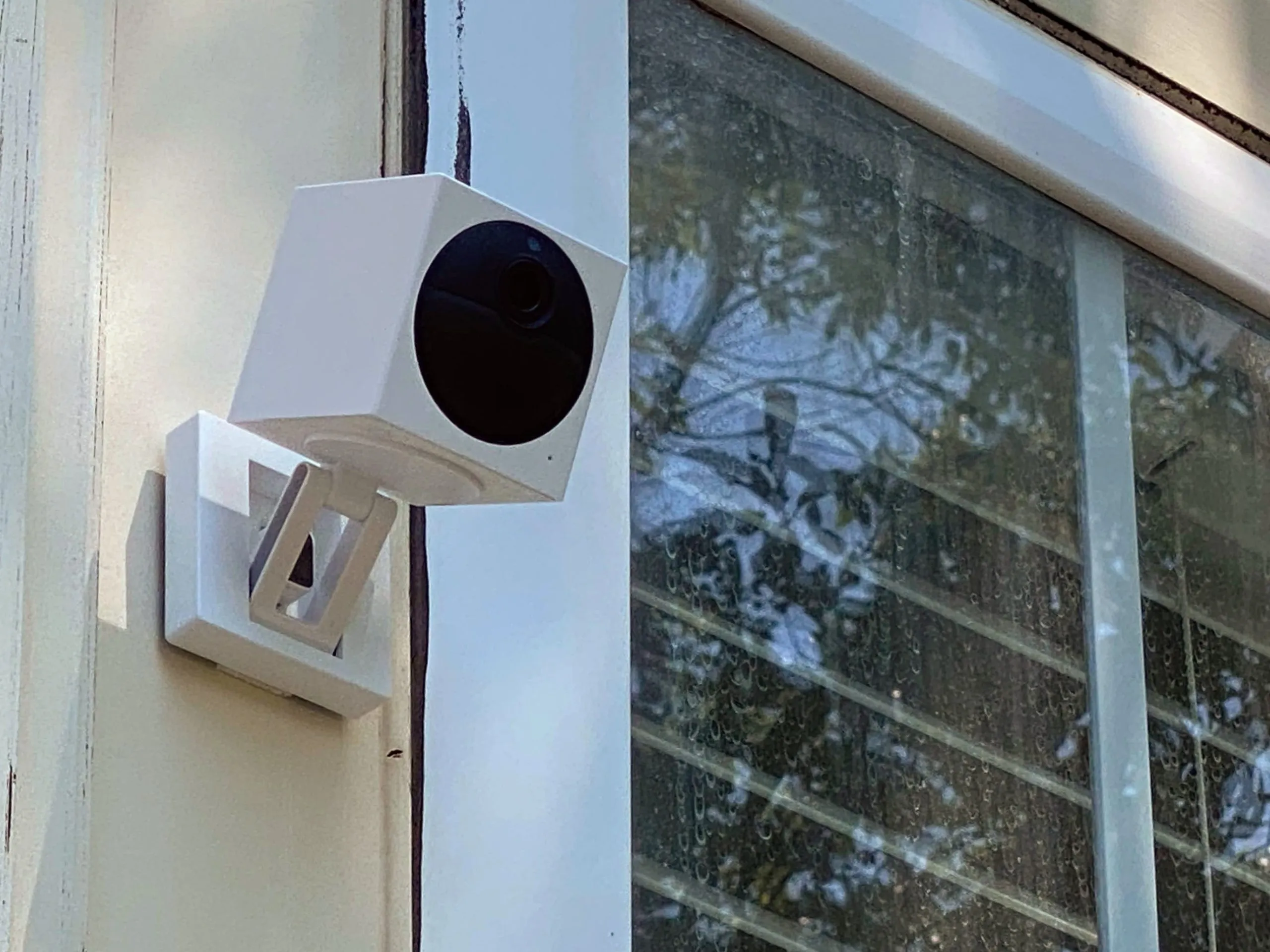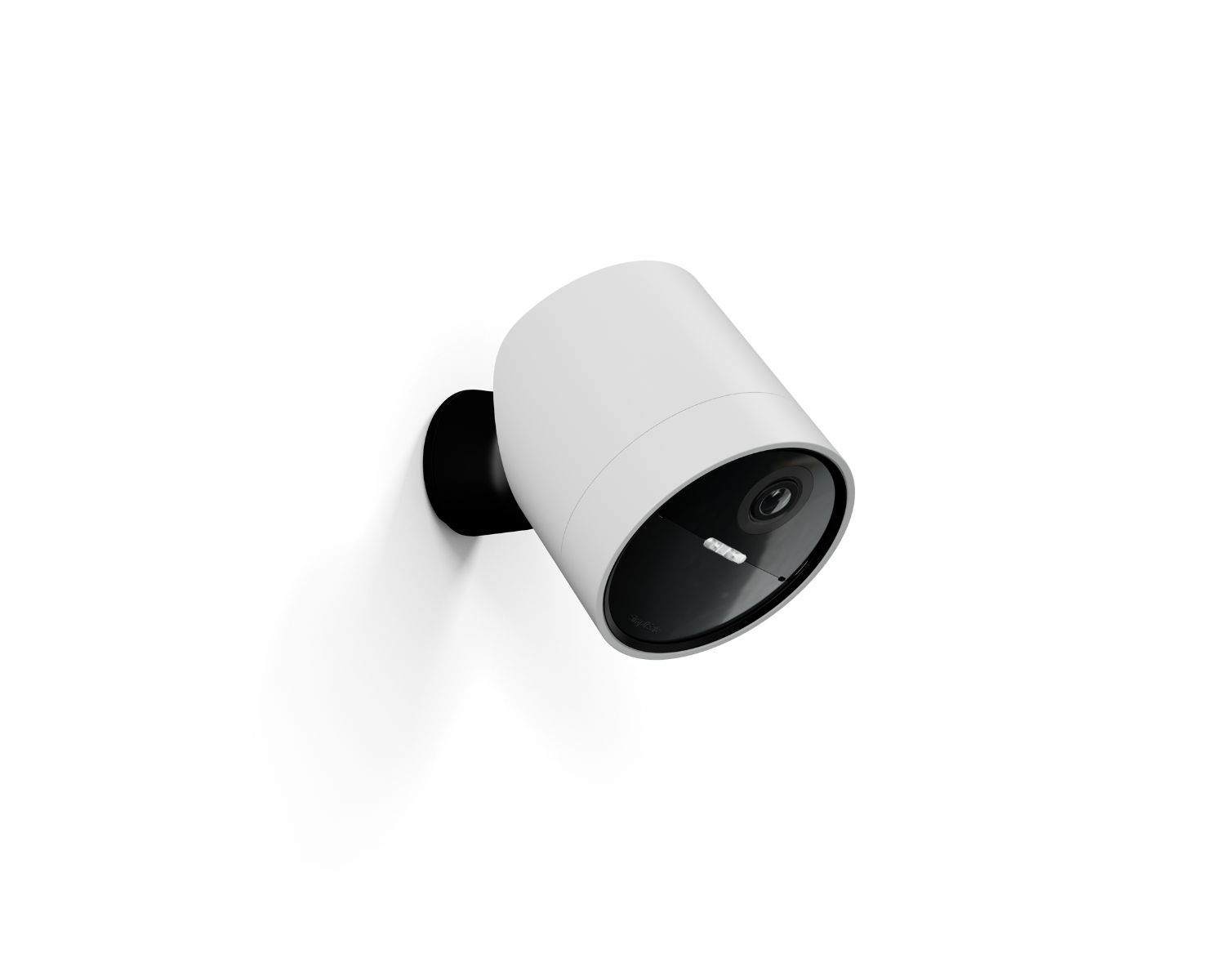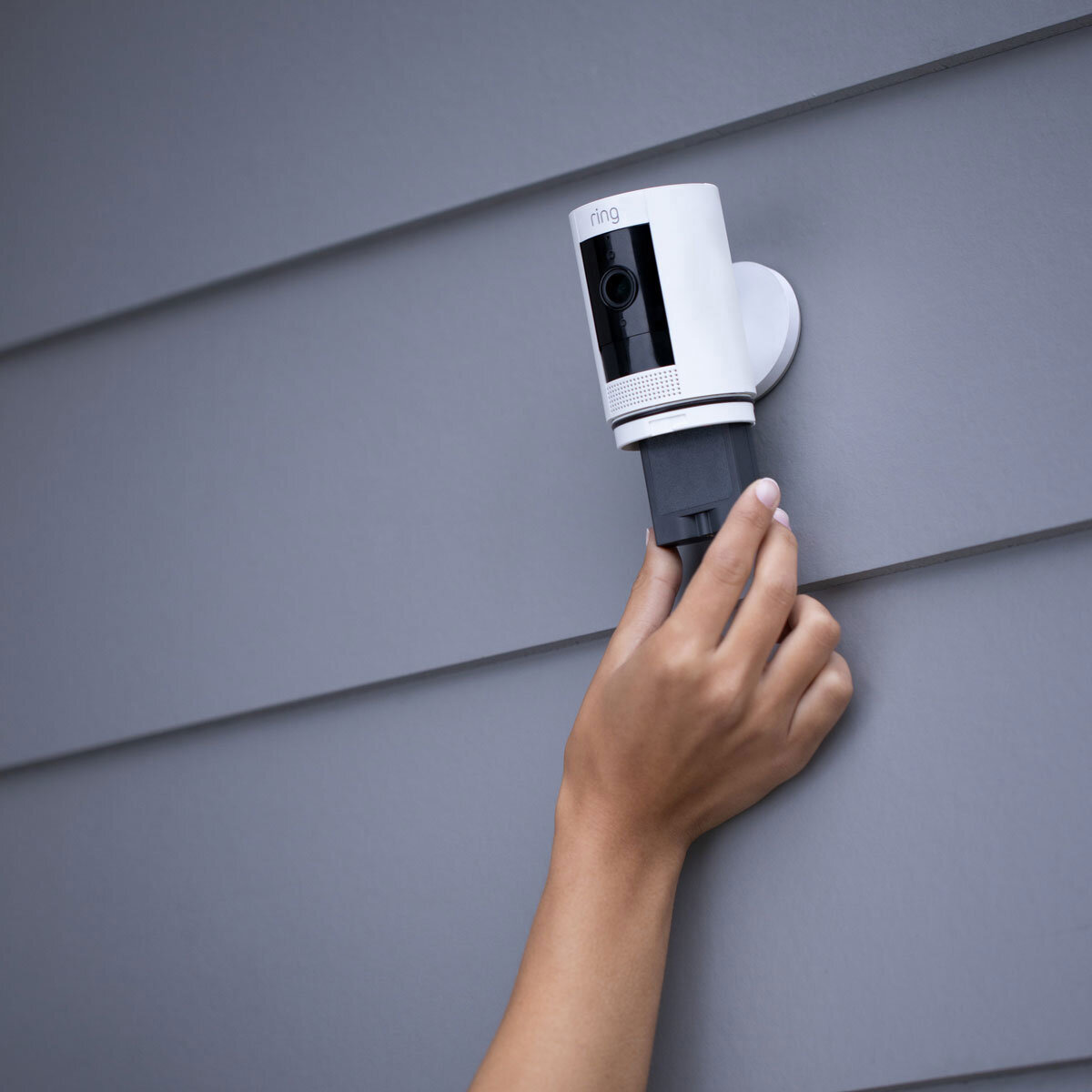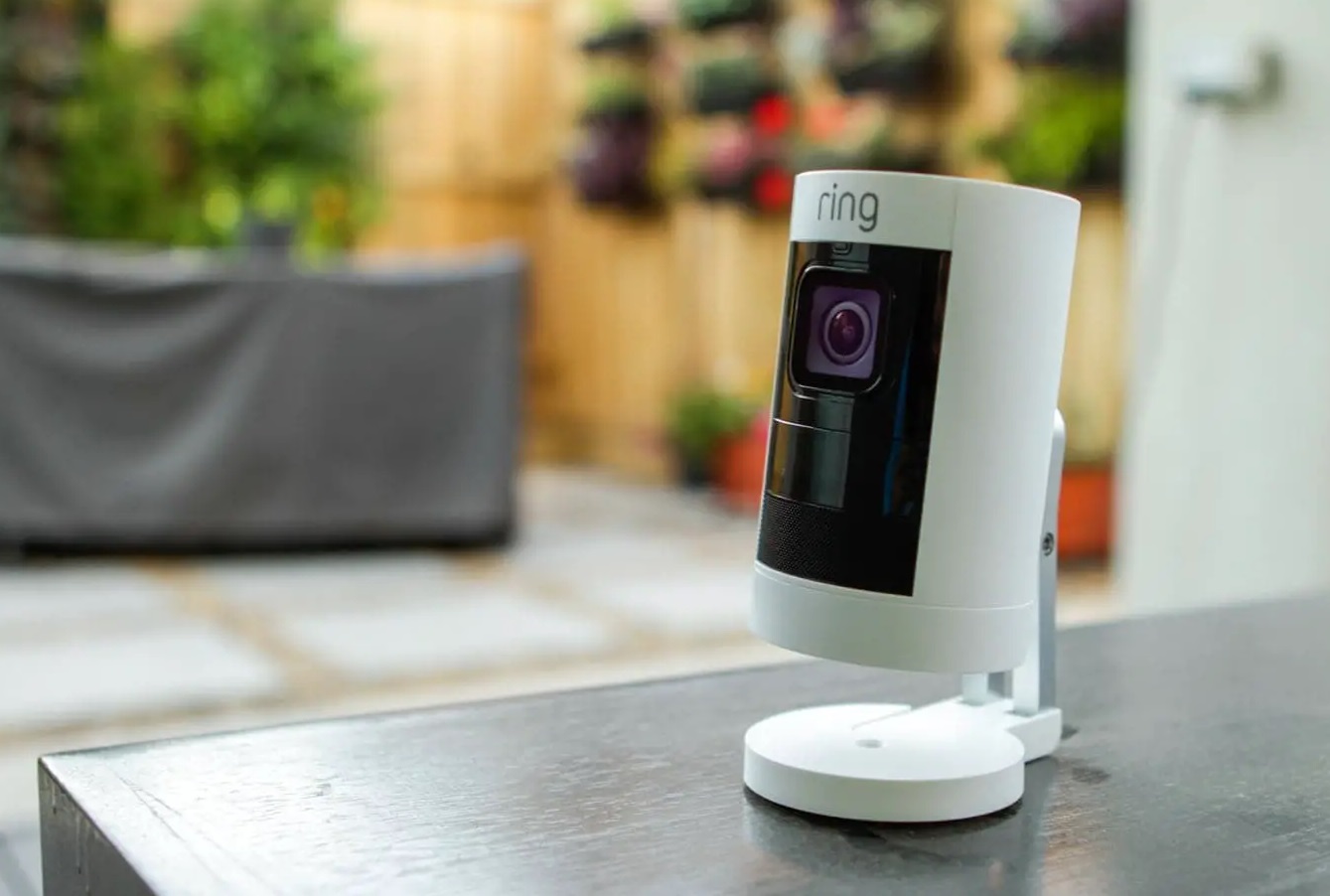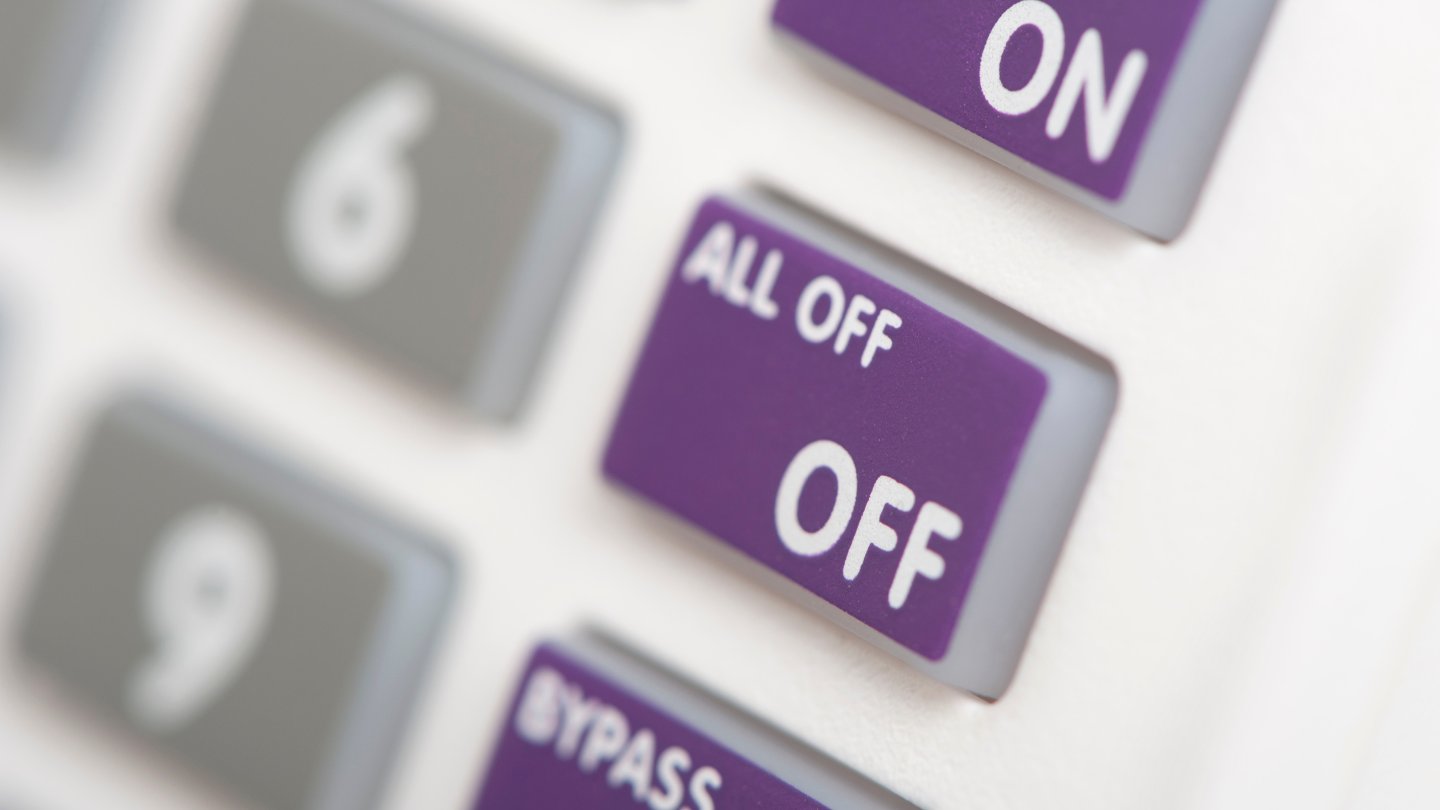Home>Home Security and Surveillance>How Long Does A Burglar Alarm Battery Last
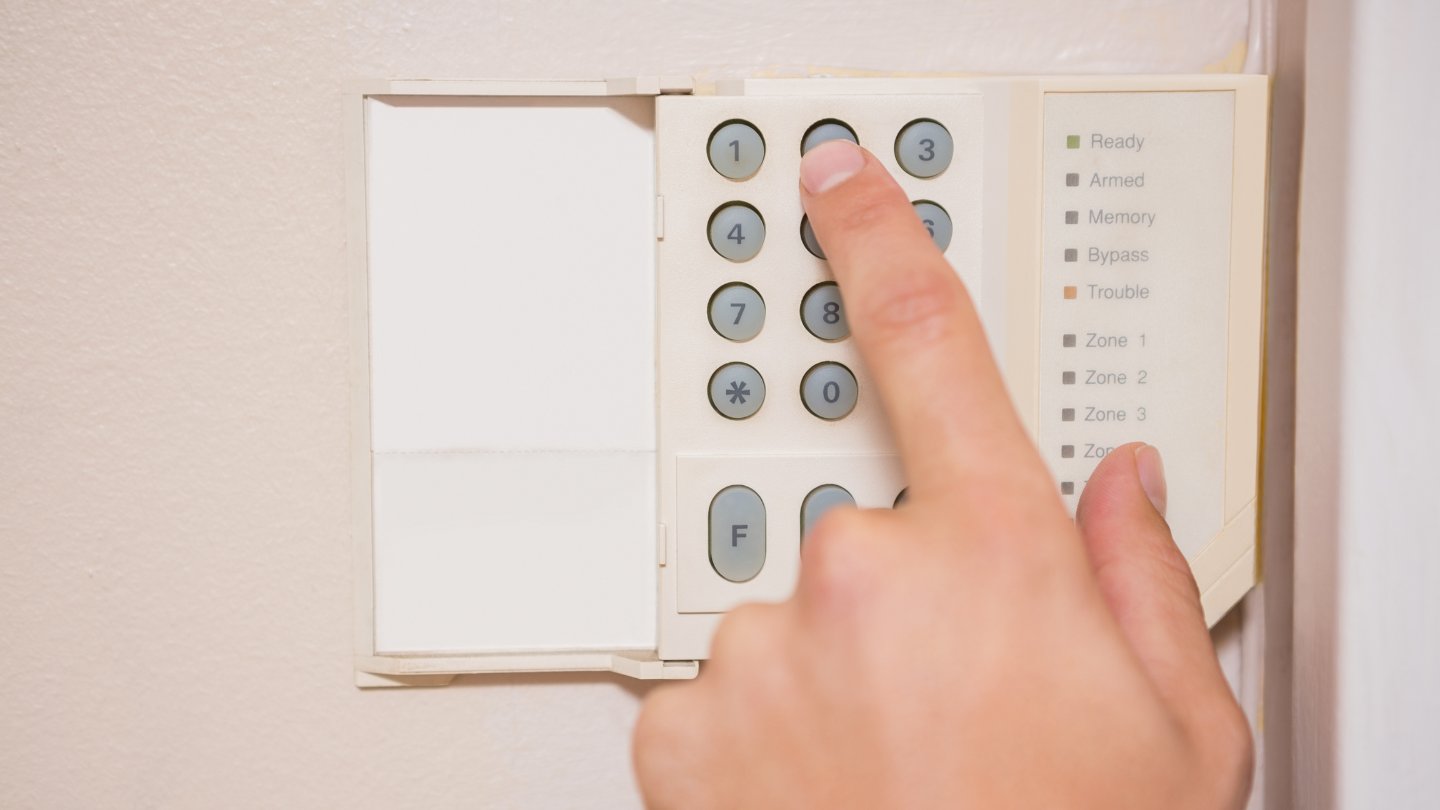

Home Security and Surveillance
How Long Does A Burglar Alarm Battery Last
Modified: October 20, 2024
Learn how long a burglar alarm battery typically lasts for home security and surveillance. Discover important factors that can impact battery life and when to replace them.
(Many of the links in this article redirect to a specific reviewed product. Your purchase of these products through affiliate links helps to generate commission for Storables.com, at no extra cost. Learn more)
Introduction
Welcome to the world of home security and surveillance! In today’s fast-paced and technology-driven society, keeping our homes and loved ones safe is of utmost importance. One of the key components of a robust home security system is a burglar alarm, which acts as the first line of defense against intruders.
While a burglar alarm provides an essential layer of protection, it is crucial to understand the lifespan and maintenance of its battery. In this article, we will delve into the factors affecting the battery life of a burglar alarm, the different types of batteries available in the market, and how long you can expect them to last.
Having this knowledge will empower you to make informed decisions about your home security, ensuring that your alarm system remains operational and effective at all times. So, let’s jump right in and explore the fascinating world of burglar alarm batteries.
Key Takeaways:
- Burglar alarm battery life is influenced by usage, type, quality, temperature, and maintenance. Regular care and choosing the right battery type can maximize its lifespan and keep your home secure.
- Recognizing signs of a failing battery, such as chirping sounds and inconsistent performance, is crucial. By following maintenance tips and knowing when to replace the battery, you can ensure your home security system remains reliable.
Read more: How To Change A Burglar Alarm Battery
Factors Affecting Burglar Alarm Battery Life
The lifespan of a burglar alarm battery can vary depending on several factors. Understanding these factors will help you optimize the battery life and ensure that your alarm system remains powered and functional. Here are some key factors that can affect the longevity of your burglar alarm battery:
- Usage: The frequency and duration of alarm system activation play a significant role in determining battery life. If your alarm is triggered frequently, the battery will drain faster. Additionally, if the alarm is armed for extended periods, it can impact battery life as well.
- Battery Type: The type of battery used in your burglar alarm system can greatly affect its lifespan. There are various battery chemistries available, such as lead-acid, lithium-ion, and nickel-cadmium. Each type has different characteristics and performance levels.
- Battery Quality: The quality of the battery can directly impact its longevity. Investing in high-quality batteries from reputable brands may cost you more upfront, but they are designed to last longer and provide reliable performance.
- Temperature: Extreme temperatures, both hot and cold, can significantly affect battery life. In high temperatures, the battery may discharge at a faster rate, while in freezing temperatures, its capacity may be reduced. It is important to install your alarm system in an environment where temperature fluctuations are minimal.
- Maintenance: Regular maintenance and proper care can extend the life of your burglar alarm battery. Keeping the battery terminals clean and free from corrosion, checking for any loose connections, and ensuring that the battery is properly charged are essential maintenance tasks.
By considering these factors and taking appropriate measures, you can maximize the lifespan of your burglar alarm battery and ensure that it functions optimally when you need it the most.
Types of Burglar Alarm Batteries
When it comes to burglar alarm systems, there are several types of batteries that can be used to power them. Each type has its own unique characteristics and advantages. Let’s take a closer look at some of the most common types of burglar alarm batteries:
- Lead-Acid Batteries: Lead-acid batteries have been a popular choice for powering burglar alarm systems for many years. They are reliable, cost-effective, and have a relatively long lifespan. These batteries are known for their ability to deliver high currents, making them suitable for alarm systems that require a quick power boost.
- Lithium-Ion Batteries: Lithium-ion batteries have gained popularity in recent years due to their high energy density and long cycle life. They are lightweight and compact, making them ideal for smaller alarm systems or applications where space is a constraint. Lithium-ion batteries also have a low self-discharge rate, meaning they can retain their charge for a longer period when not in use.
- Nickel-Cadmium (NiCd) Batteries: Nickel-cadmium batteries are known for their reliability and durability. They have a good cycle life and can withstand high temperatures, making them suitable for alarm systems installed in harsh environments. However, they have lower energy density compared to lithium-ion batteries and are more prone to memory effect if not fully discharged before recharging.
- Nickel-Metal Hydride (NiMH) Batteries: Nickel-metal hydride batteries are similar to nickel-cadmium batteries but offer a higher energy density. They provide a good balance between performance and cost-effectiveness. NiMH batteries are also more environmentally friendly as they do not contain hazardous materials like cadmium.
It is important to select a burglar alarm battery that is compatible with your specific alarm system and meets your power requirements. Consider factors such as battery life, capacity, and voltage when choosing the appropriate battery type.
Remember, not all batteries are created equal, so it is vital to consult the manufacturer’s guidelines and recommendations to ensure you are using the right battery for your burglar alarm system.
Average Lifespan of Different Burglar Alarm Batteries
The lifespan of a burglar alarm battery varies depending on the type and quality of the battery, as well as the usage patterns and environmental factors. Here is a general overview of the average lifespan you can expect from different types of burglar alarm batteries:
- Lead-Acid Batteries: On average, lead-acid batteries have a lifespan of around 3 to 5 years. However, with proper maintenance and care, they can last even longer. Regularly checking the battery’s voltage and charging it as needed can help extend its lifespan.
- Lithium-Ion Batteries: Lithium-ion batteries are known for their long cycle life and can last anywhere between 5 to 10 years. They have a higher initial cost compared to lead-acid batteries but offer better performance and reliability. It is important to note that improper charging or exposure to extreme temperatures can reduce the lifespan of lithium-ion batteries.
- Nickel-Cadmium (NiCd) Batteries: Nickel-cadmium batteries have an average lifespan of 5 to 7 years. With proper maintenance and regular cycling (fully discharging and charging), their lifespan can be extended. However, it is essential to avoid overcharging and ensure that the batteries are not exposed to extreme temperatures as it can significantly impact their longevity.
- Nickel-Metal Hydride (NiMH) Batteries: Nickel-metal hydride batteries generally have a lifespan of around 2 to 5 years. They offer a good balance between performance and cost-effectiveness. Similar to NiCd batteries, proper maintenance and regular cycling can help prolong their lifespan.
It is important to note that these lifespan estimates are approximate and can vary based on different factors such as usage patterns, maintenance, and environmental conditions. Additionally, advancements in battery technology may result in longer-lasting batteries in the future.
To maximize the lifespan of your burglar alarm battery, it is essential to follow the manufacturer’s guidelines regarding maintenance, charging, and storage. Regularly checking the battery voltage and taking appropriate measures to prevent overcharging or discharging can help ensure optimal battery performance and longevity.
Regularly check the manufacturer’s guidelines for the specific burglar alarm battery, but on average, a battery can last 3-5 years.
Signs of a Failing Burglar Alarm Battery
As the battery in your burglar alarm system nears the end of its lifespan, it may exhibit certain signs indicating that it is starting to fail. Recognizing these signs can help you take timely action and replace the battery before it completely loses its ability to power your alarm system. Here are some common signs of a failing burglar alarm battery:
- Chirping Sounds: Most burglar alarm systems have a built-in feature that emits a chirping sound when the battery is low. If you hear a constant, repetitive chirping noise coming from your alarm system panel, it is likely a sign that the battery needs to be replaced.
- Inconsistent Performance: A failing battery can cause your burglar alarm system to behave erratically. You may notice that the alarm randomly activates or deactivates without any apparent reason, or it may fail to sound an alarm when it should. Such inconsistent performance can be a result of insufficient power supply from the battery.
- Dim or Flickering Indicator Lights: The indicator lights on your alarm system panel may appear dim or start flickering when the battery loses its capacity. This can be indicative of a weak battery that no longer provides a steady power supply to the system.
- System Errors or Malfunctions: A failing battery can cause your burglar alarm system to display error messages or experience malfunctions. This can include issues with zone detection, keypad responsiveness, or communication failures. These errors may persist even after troubleshooting the system, pointing towards a battery-related problem.
- Increased False Alarms: A dying battery can result in an increased number of false alarms from your burglar alarm system. The compromised power supply can cause the sensors to malfunction or trigger false alarms, leading to unnecessary disturbances and potential system malfunctions.
If you notice any of these signs, it is essential to address the issue promptly. Continuing to rely on a failing battery compromises the effectiveness and reliability of your burglar alarm system, leaving your home vulnerable to potential security threats. Replacing the battery as soon as possible will restore the system’s functionality and ensure that it can continue providing the necessary security measures.
Read more: How Long Does A Ring Doorbell Battery Last
How to Extend the Lifespan of Your Burglar Alarm Battery
While the lifespan of a burglar alarm battery is influenced by various factors, there are steps you can take to extend its longevity. By implementing these strategies, you can optimize the performance and reliability of your burglar alarm system. Here are some tips to help you extend the lifespan of your burglar alarm battery:
- Regular Maintenance: Proper maintenance is crucial to ensure the optimal performance and lifespan of your burglar alarm battery. Regularly inspect and clean the battery terminals to remove any corrosion or build-up. Clean terminals will ensure a strong and uninterrupted connection with the alarm system.
- Keep the Battery Charged: Regularly monitor the battery voltage and ensure that it stays within the recommended range. If the battery voltage drops too low, recharge it immediately to avoid deep discharge. Allowing the battery to remain discharged for extended periods can significantly shorten its lifespan.
- Control Temperature Exposure: Extreme temperatures, both hot and cold, can negatively impact battery life. Install your burglar alarm system in an environment where temperature fluctuations are minimal. Avoid exposing the battery to direct sunlight, as it can increase the temperature and degrade the battery’s performance.
- Optimize System Settings: Adjust your alarm system settings to minimize battery drain. For example, reduce the sensitivity of motion detectors or adjust the intervals at which the system checks for updates. These optimizations can help conserve battery power and prolong its lifespan.
- Invest in High-Quality Batteries: Purchase batteries from reputable brands known for their quality and reliability. Although they may cost slightly more upfront, high-quality batteries are designed to last longer and provide consistent performance throughout their lifespan.
- Consider Battery Backup: If power outages are common in your area, consider investing in a battery backup system for your burglar alarm system. This backup system ensures that your alarm system remains operational even during power disruptions, reducing the strain on the primary battery and extending its lifespan.
- Update and Upgrade Components: Periodically check for any firmware updates or software upgrades for your burglar alarm system. Keeping your system up to date ensures optimal performance and can help reduce unnecessary battery drainage due to software issues or bugs.
By implementing these strategies, you can significantly extend the lifespan of your burglar alarm battery. Regular maintenance, proper charging, and temperature control are key factors in maximizing battery life. Additionally, investing in high-quality batteries and optimizing system settings will contribute to the overall longevity of your burglar alarm system.
Remember, a well-maintained and properly functioning battery ensures that your burglar alarm system remains reliable and capable of protecting your home and loved ones.
When to Replace Your Burglar Alarm Battery
Knowing when to replace the battery in your burglar alarm system is vital to maintain its effectiveness and ensure uninterrupted security. While the lifespan of a battery can vary depending on several factors, there are some indicators that suggest it’s time for a replacement. Here are some signs to look out for:
- Low Battery Warnings: When your burglar alarm system consistently displays low battery warnings or emits chirping sounds, it indicates that the battery is nearing the end of its lifespan. Ignoring these warnings can result in a complete power failure, leaving your home vulnerable to security risks.
- Diminished Performance: If you notice a decrease in the performance of your burglar alarm system, such as delayed response times, unresponsiveness, or frequent false alarms, it could be a sign of a failing battery. Inadequate power supply can compromise the system’s functionality and compromise its ability to protect your home.
- Visual Inspection: Conducting a visual inspection of the battery can reveal signs of deterioration or damage. If you notice any leaking fluids, bulging or deformed casing, or corrosion on the terminals, it is a clear indication that the battery needs to be replaced. These issues can occur as the battery nears the end of its lifespan or due to improper maintenance.
- Age Factor: Even if there are no apparent signs of battery failure, it is generally recommended to replace the battery after a certain period. Most batteries have a lifespan of 3 to 5 years, while others may last longer. Refer to the manufacturer’s guidelines or consult the alarm system provider to determine the ideal lifespan for your specific battery type.
- Loss of Battery Capacity: Over time, batteries can lose their capacity to hold a charge effectively. If you find that the battery requires more frequent recharging or has significantly reduced standby time, it may be an indication that its capacity has diminished. In such cases, replacing the battery will restore the system’s optimal performance and ensure reliable power supply.
It is important to note that regular maintenance, including cleaning the terminals and monitoring battery voltage, can help detect potential battery issues early on. However, if you experience any of the signs mentioned above, it is best to err on the side of caution and replace the battery to maintain the security and reliability of your burglar alarm system.
Remember, a well-functioning battery is essential for your home security, ensuring that your burglar alarm system operates seamlessly and provides the necessary protection when you need it the most.
Conclusion
Protecting your home and loved ones is a top priority, and a robust burglar alarm system is an essential component of a comprehensive home security plan. Understanding the lifespan and maintenance of the battery in your burglar alarm system is crucial for ensuring its reliability and effectiveness.
In this article, we explored the factors that can affect the lifespan of a burglar alarm battery, including usage patterns, battery type, quality, temperature, and maintenance. We also discussed the different types of burglar alarm batteries available in the market, such as lead-acid, lithium-ion, nickel-cadmium, and nickel-metal hydride, along with their average lifespans.
Recognizing the signs of a failing battery, such as chirping sounds, inconsistent performance, dim or flickering indicator lights, system errors, and increased false alarms, allows you to take prompt action and replace the battery before it affects the overall functionality of your burglar alarm system.
We also provided tips on how to extend the lifespan of your burglar alarm battery, such as regular maintenance, proper charging, temperature control, optimization of system settings, using high-quality batteries, and considering battery backup systems.
Lastly, we emphasized the importance of knowing when to replace your burglar alarm battery. Low battery warnings, diminished performance, visual inspection for signs of deterioration, the age of the battery, and loss of battery capacity are key indicators that it’s time for a replacement.
By following these guidelines and having a proactive approach to maintaining and replacing your burglar alarm battery, you can ensure that your home security system remains reliable, providing peace of mind and protection for your home and loved ones.
Remember, when it comes to home security, investing in a high-quality burglar alarm system and keeping its battery in optimal condition are essential steps towards creating a safe and secure environment.
Frequently Asked Questions about How Long Does A Burglar Alarm Battery Last
Was this page helpful?
At Storables.com, we guarantee accurate and reliable information. Our content, validated by Expert Board Contributors, is crafted following stringent Editorial Policies. We're committed to providing you with well-researched, expert-backed insights for all your informational needs.
